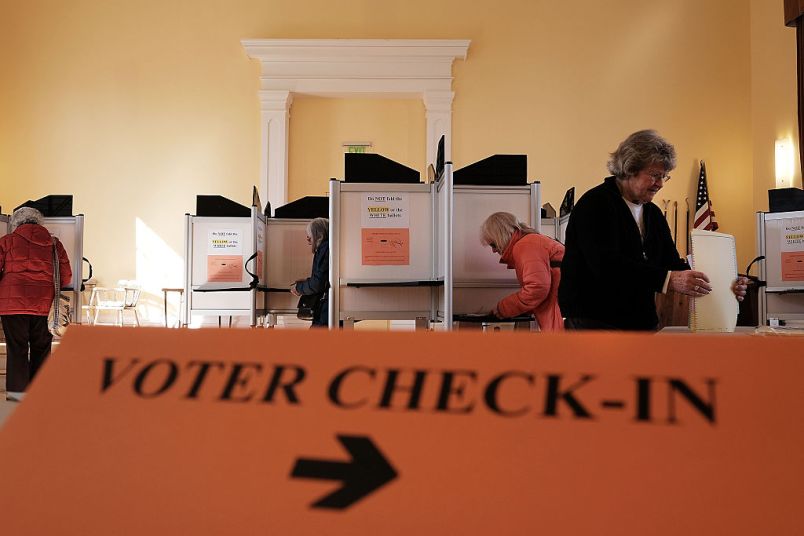After seven months, tens of thousands of dollars, and three court rulings, Michigan voters were officially given the opportunity to decide how the redistricting process works in their state.
The Michigan Supreme Court ruled 4-3 late Tuesday night to uphold an appeals’ court’s decision to keep a local citizens’ group’s anti-gerrymandering initiative on the November ballot.
“The court’s decision upholds our right as citizens to petition our government for positive change,” Katie Fahey, founder and executive director of the group, Voters Not Politicians (VNP), said in a statement.
Some of the over 425,000 Michiganders who signed the petition to get the measure on the ballot have already pivoted to voter outreach efforts, knocking on over 86,000 doors to date to explain their push for an independent redistricting commission, according to Fahey.
The Supreme Court’s ruling represents a final defeat for Citizens Protecting Michigan’s Constitution (CPMC), a conservative group funded by the state Chamber of Commerce that fought to block the measure through the courts. CPMC maintained that the initiative, which would strip state lawmakers of the power to redraw U.S. House and state legislative districts after each decennial census, was too far-reaching to be addressed with one ballot measure. The group argued that redistricting reform should instead be handled through a constitutional convention.
A 3-0 state Court of Appeals ruling that found CPMC’s complaint “without merit” did not deter the group, which filed an appeal to the Republican-dominated Supreme Court. Nor did a 3-0 June vote by the Michigan Board of Canvassers to approve VNP’s measure.
This pitched battle drew national attention, with voting rights group Common Cause teaming up with former Republican California Gov. Arnold Schwarzenegger to file an amicus brief in support of VNP.
Kathay Feng, Common Cause national redistricting director, said she was “thrilled” with Tuesday’s decision.
Asked for comment, CPMC spokesman Dave Doyle sent a brief email to TPM: “Disappointed in the ruling but accept the decision. Nothing else to say at this point.”
If it passes in November, the VNP measure will establish a 13-person bipartisan commission — composed of four Republicans, four Democrats, and five independents — to assume control of map-drawing responsibilities. Commission members will have to adhere to “accepted measures of partisan fairness” and avoid granting any particular party “disproportionate advantage.”
The current fight to reform Michigan’s redistricting process comes after twenty years of GOP control over the state legislature







Good for Michigan. Bad for politicians. They really shouldn’t be allowed to select their own voters.
Narrator voiceover: “Now, observe as millions of dollars pour into Michigan to defeat this measure.”
This is truly wonderful for both Michigan and the country. I expect to see more of these ballot measures popping up, and I expect most will pass. There just aren’t a lot of great and sound arguments as to why districts shouldn’t be drawn fairly and proportionately. I suspect even a plurality of GOP voters will get on board since they wholeheartedly believe they’re the silent majority being denied their rightful representation by minorities flooding into their districts.
How’s the polling going?
wow! I’m so happy about this, because I knew about the Court’s make-up. My husband and I signed the petition and crossed our fingers.
Yay! Yay! Yay! Go, Michigan!!